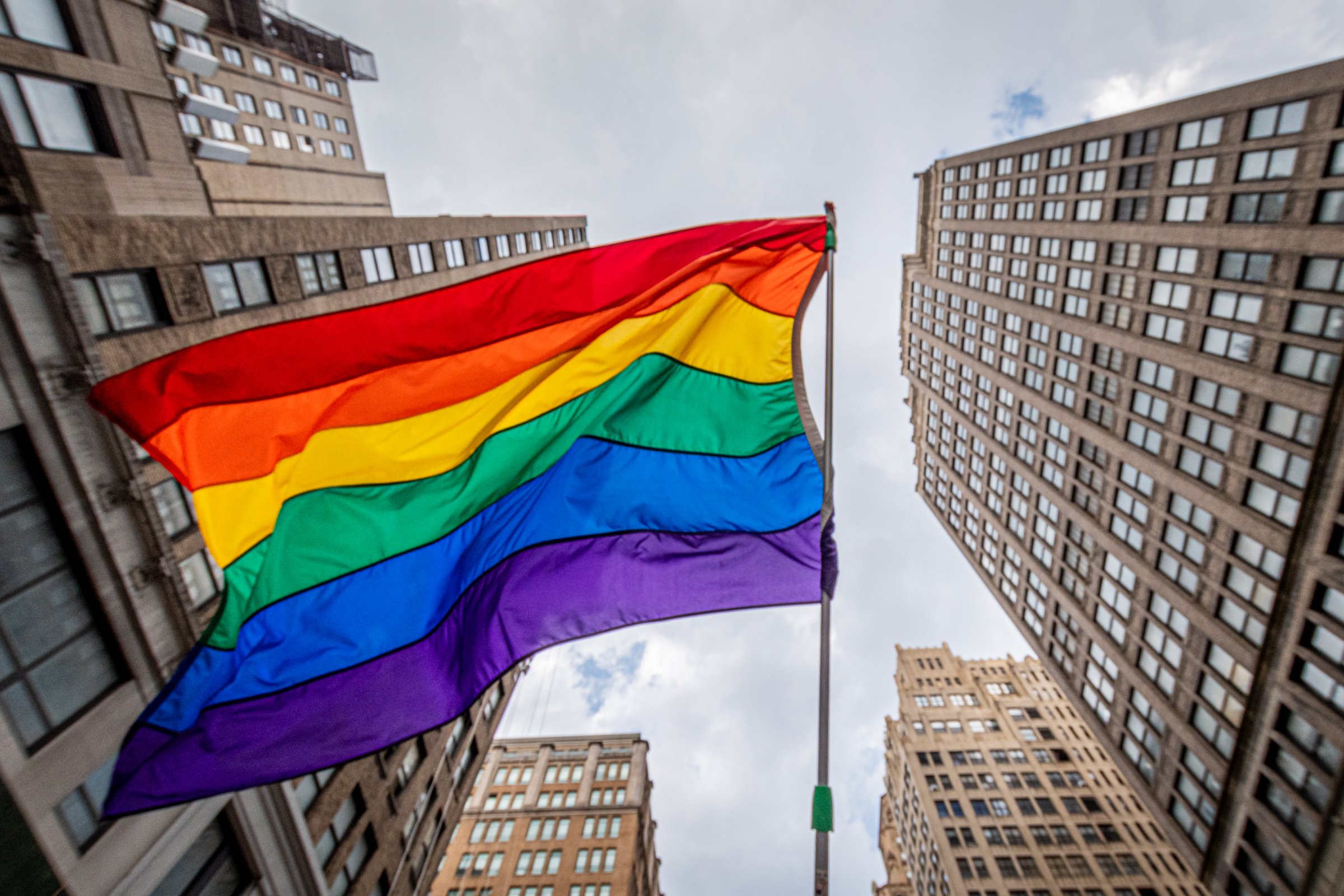
Exxon Mobil Corp. plans to prohibit the LGBTQ-rights flag from being flown outside its offices during Pride month in June, prompting backlash from Houston-based employees.
Exxon updated company guidance on what flags can be displayed outside its offices, banning “external position flags” such as PRIDE and Black Lives Matter, according to the policy seen by Bloomberg News. In response, members of Exxon’s PRIDE Houston Chapter are refusing to represent the company at the city’s June 25 Pride celebration, according to an employee group email also seen by Bloomberg.
“Corporate leadership took exception to a rainbow flag being flown at our facilities” last year, Exxon’s PRIDE Houston employee group wrote in the email Thursday. “PRIDE was informed the justification was centered on the need for the corporation to maintain ‘neutrality.’”
The dispute comes as employees, investors and customers increasingly push America’s biggest corporations to take stances on social issues such as LGBTQ rights, racial equality and abortion. Walt Disney Co. last month decided to publicly oppose legislation promoted by Florida Governor Ron DeSantis that critics call the “Don’t Say Gay” bill, prompting lawmakers to move to strip the entertainment giant of special self-governance privileges.
“The updated flag protocol is intended to clarify the use of the ExxonMobil branded company flag and not intended to diminish our commitment to diversity and support for employee resource groups,” Tracey Gunnlaugsson, vice president of human resources, said in a statement. “We’re committed to keeping an open, honest, and inclusive workplace for all of our employees, and we’re saddened that any employee would think otherwise.”
While the commonly recognized rainbow flag is prohibited, Exxon supports displaying banners and flags with logos of so-called employee resource groups, especially during signature months, Gunnlaugsson said. “The flags are directly related to our business and company support of our ERGs, including PRIDE for LBGTQ+ employees.”
Exxon has made significant strides to improve diversity and extend employee benefits over the last decade, but some workers perceive the row over the rainbow flag as a major setback for LGBTQ employees and their allies. The oil giant was slower than many corporations to provide equal coverage, but added gay marriage benefits in 2014, restored protective-employment language in 2015 and added transgender coverage in 2016.
Exxon’s Pride employee resource group has existed since 2008 and currently has 3,000 members globally. Exxon’s worldwide workforce is about 63,000.
“Diversity is not a stand-alone activity; it is embedded in our core values, our approach to how we develop talent, and the culture to which we aspire,” Gunnlaugsson said.
Read More: History-Making Trans State Legislator Danica Roem’s Roadmap for Protecting LGBTQ Kids
Still, some Exxon employees believe the company’s leadership should be taking a stronger position on LGBTQ rights.
“It is difficult to reconcile how ExxonMobil recognizes the value of promoting our corporation as supportive of the LGBTQ+ community externally (e.g. advertisements, Pride parades, social media posts) but now believes it inappropriate to visibly show support for our LGBTQ+ employees at the workplace,” the workers’ group said in the email.
Exxon has already suffered unprecedented employee attrition in the U.S. over the past year. Globally, the company’s headcount dropped by 9,000 people, or 13%, last year as a result of layoffs, attrition and performance-related departures.
“Flying a Pride flag is one small way many corporations choose to visibly show their care, inclusion and support for LGBTQ+ employees,” the group said. “These types of visible actions are even more impactful for many of our LGBTQ+ colleagues who aren’t out at work and may not feel comfortable participating in PRIDE events.”
More Must-Reads from TIME
- How Donald Trump Won
- The Best Inventions of 2024
- Why Sleep Is the Key to Living Longer
- Robert Zemeckis Just Wants to Move You
- How to Break 8 Toxic Communication Habits
- Nicola Coughlan Bet on Herself—And Won
- Why Vinegar Is So Good for You
- Meet TIME's Newest Class of Next Generation Leaders
Contact us at letters@time.com